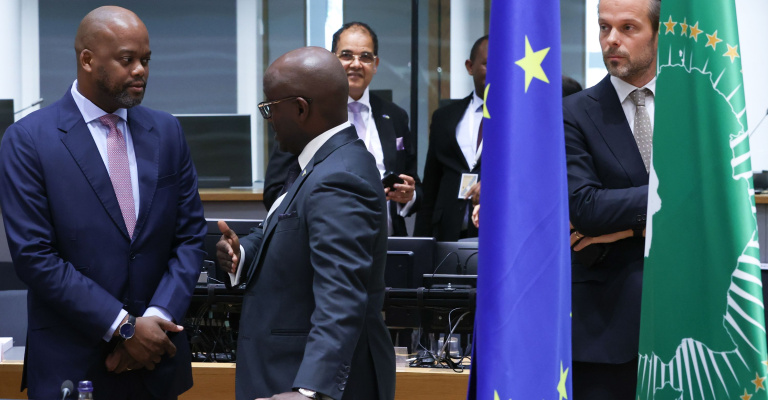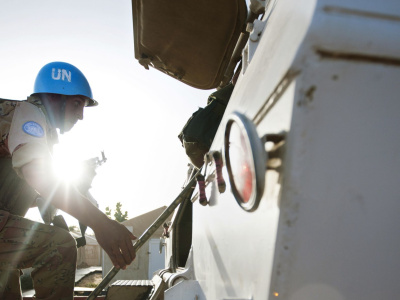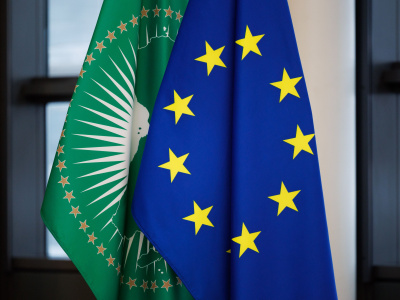
The AU-EU summit’s quiet crisis of relevance
As Africa is increasingly diversifying its partnerships, Ueli Staeger argues that the Luanda summit – like the ones before it – cannot be expected to resolve the underlying political problems of the relationship between the two continents.
An eerie quiet surrounds the preparations of the 7th AU-EU summit in Luanda. Well-organised summits can generate significant shifts in diplomatic relationships. However, the Luanda summit risks becoming only a platform for bilateral diplomacy, disappointing both sides. The AU-EU partnership is marred by the EU's Brussels-centric governance of partnership tools and its move towards financialised development strategies, as well as by fragmented African diplomacy. The absence of a widely recognised Common African Position on the partnership complicates matters. As Africa increasingly pursues multi-alignment, this summit could come to symbolise the EU’s growing perceived irrelevance in the Global South.
The turbulence of international politics makes many diplomats miss quieter days. At a debrief of the EU-AU ministerial meeting of foreign ministers in May 2025, co-organised by ECDPM and EUISS, this came tellingly to the fore. One of the biggest rounds of applause in a room packed with diplomats, journalists and stakeholders from both continents was given in response to a speaker’s praise of how South African President Cyril Ramaphosa had handled a difficult meeting with President Donald Trump in the White House. The sentiment in the room was that, finally, Europe and Africa have found some common ground in diplomatic style and substance again.
Reassurance and reliability are important in times of crisis. Some of Africa’s other partners are waning in their interest in Africa, or have become increasingly transactional in their approach. Neither Russian security assistance nor Chinese investment pledges have turned out to be a panacea. Against this background, the familiar script of ‘yet another AU-EU summit’ is enticing in some diplomatic circles.
Fragmented and multi-aligned diplomacy as obstacles
Despite rhetorical commitment to updating the AU-EU partnership, there are important obstacles to overcome. Where decisions are taken is the most fundamental aspect of such fragmentation. The EU’s new partnership instruments, including NDICI-Global Europe, Global Gateway, and the European Peace Fund, have significantly reduced how African states and regional organisations can shape EU programme delivery in Africa. While EU officials work hard to achieve a coherent approach and output, their decision-making processes are inwardly and EU member state-oriented. EU instrument management is too shielded to be usefully shaped by the AU-EU summit and its outcomes. Beneficiaries in Africa have criticised the EU for a lack of clear project selection and accountability mechanisms.
The fragmentation of African diplomacy additionally makes it hard for the AU-EU partnership to transform meaningfully. This is partially driven by the EU, whose wisdom in organising the 2025 Global Gateway Forum, merely six weeks before the AU-EU summit, can be questioned. With foreign ministries already stretched thinly in the very busy diplomatic latter half of 2025, the summit has further fragmented diplomatic attention.
AU member states have been engaged in the same bilateralisation of partnerships that the EU also espouses. As a result, the continental level features much less today. The fact that the AU does not publicise its Common African Position(s) on relations with the EU as effectively as, for example, the Ezulwini Consensus on UN Security Council reform, further fragments African diplomatic efforts. It is noteworthy, though, that the EU has also not published a pre-summit strategic vision, as its 2020 “Towards a comprehensive Strategy with Africa” Joint Communication.
The EU is no longer the only player in town. Its partnership offer is losing relevance in the growing density of multi-alignment by African states. With the revival of global geopolitical competition, Africa smartly draws lessons from the Cold War’s non-alignment to inform its strategy of multi-alignment, balancing deep and equity-oriented partnerships with competing great powers. In this dense network of diplomacy, the EU’s range of partnership instruments is perceived as more complex and cumbersome than those of other partners.
There are structural obstacles to what ‘political work’ can achieve within established institutions. Institutional reforms do not automatically solve more fundamental underlying political problems.
Institutional solutions for political problems?
Arguably, the most fundamental challenge in the AU-EU partnership architecture is that, by projecting so much expectations for summitry to deliver change, states and other stakeholders are pursuing institutional solutions for political problems. As research shows, there are structural obstacles to what ‘political work’ can achieve within established institutions. Institutional reforms do not automatically solve more fundamental underlying political problems – the persistent disagreements on measuring the success of AU-EU cooperation between summits are a case in point.
Political problems abound between the two continents. In Europe, right-wing, transactionalist discourses on relations with the Global South have the advantage of overcoming some of the paternalistic postcolonial rhetoric of the earlier days of AU-EU partnership, but simultaneously often espouse a nativist tendency that ultimately undermines universal human rights. As a result, if EU government leaders were asked to redraft the 2007 Joint Africa-EU Strategy today, the language and substance would drastically change. Changes in member state sensitivities toward Africa have also gradually shaped how Commission, Council, and EEAS officials think about Africa. Ideas of mutual learning about regional integration between the continents have fallen behind as the EU increasingly focuses on its geopolitical turn.
The majority of African states today need the EU less, both in symbolism and substance.
On the African continent, politics has moved away from the approach institutionalised in the AU-EU partnership. African governments are more politically diverse than ever. While a shrinking group of states still banks on the promise of European development aid, others’ electoral coups have remained unsanctioned by the AU. Yet almost all African states have been active in diversifying their partnerships. While the drastic disavowal of France in several West African countries has created panic in Western capitals, the majority of African states today need the EU less, both in symbolism and substance.
Given more options, African states will treat the AU-EU summit as just one of many opportunities if it fails to deliver new capital, a commitment to transforming global multilateral institutions, or tangible engagement with long-standing and specific policy grievances in the partnership. A real breath of fresh air would be transparent and accountable, policy domain-specific deals. One of many examples is the September 2025 African Leaders’ Addis Ababa Declaration on Climate Change and Call to Action’s specific mention of the EU’s Carbon Border Adjustment Mechanism and EU Deforestation Regulation, where concrete negative impacts on African countries could be addressed.
Whether the EU can reinvent itself as a relevant partner to Africa in an age of multi-alignment remains to be seen. Bilateralism alone, without overall vision and coherence, will not suffice.
The views are those of the authors and not necessarily those of ECDPM.





